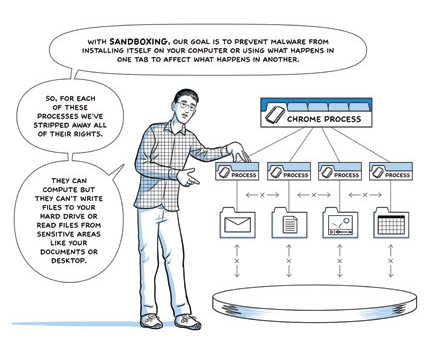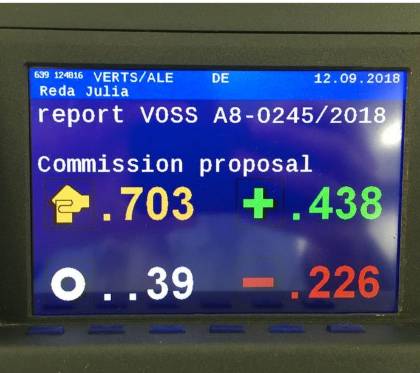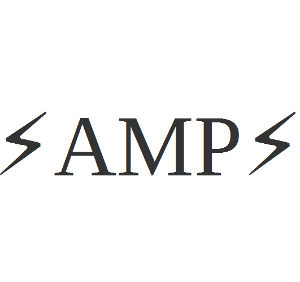| The 12 News Days of Xmas 09 - September |
| Written by Editor | |||
| Monday, 31 December 2018 | |||
|
It's the back to school month and many people feel that the year starts here. So let's get serious... At the start of September Google decided to celebrate the fact that Chrome was 10 years old. Looking back on the early releases you can't help be sad how bloated memory hungry the browser has become. However, it makes little difference because at the end of the year Chrome, or rather the open source Chromium project, became the only real alternative to Firefox as Microsoft gave up the struggle to built its own browser. So much power in so few hands. As if to prove it, the Chrome team started to muse on how they might make the web "better" by killing the URL: Chrome is just ten years old this week and what a change 10 years has brought about. It changed the browser landscape beyond recognition and it also provides an example of how software loses its youthful vigor. Google is 20 years this week and Chrome is 10. You would think that they would both show some maturity, but instead we have an experiment that most aren't going to like. Are URLs that bad and is it Google's job to put things right? If you think about sorting at all you probably think that Quicksort is the king. Recently, however, a new hybrid sorting algorithm - TimSort - has been adopted by Python and Java and probably other languages.Now have we had confirmation that TimSort really is as fast as it claims to be: Most of us suppose that sorting algorithms are all done-and-dusted. Nothing new or exciting is left to find or discover, but TimSort, used in both Python and Java, was born in 2002 and is still being investigated. 2018 was in more than one sense the year of Python and September's TIOBE index - not the most reliable or interpretable of the indices - put it at number three, displacing C++ and the PYPL index placed it number one. People just want to talk about Python. We keep on reporting on the popularity of Python and now it has passed two new milestones. It has displaced Java at the top of the PYPL Index and has reached the rank of three in the TIOBE Index, pushing C++ into fourth place. It is still too early to say what the effect of the EU Copyright Directive is going to be but we really need to worry when government tries to regulate the Internet, or indeed technology. Not because it doesn't need regulating, but because the legislators are ill equipped to deal with it. Today the European Parliament has voted in favor of the Copyright Directive, the controversial piece of legislation intended to update online copyright laws for the internet age. Do you trust Google? Well no. It is a company out to make a profit - what's trust got to do with it. Google's AMP promises to deliver a faster web but only if we follow Google's rules and let Google interfere with the serving of pages. There isn't much to be done about altering the way AMP is perceived by the majority of programmers but that doesn't stop Google from trying: Google's AMP is controversial. Is it a Trojan horse that allows Google to take over the web, or is it a tool for delivering fast web pages that benefits everyone? Now, with new Open Governance for the project, surely it must be an open source force for good? Do you trust Oracle? Well no. It's a company out to make .. see the introduction to the previous news item. But the bottom line is that trust doesn't come into it. During the year rumours, mostly wrong circulated that Oracle was working on finding ways to make users pay for Java will somehow pretending it was still free. So far most of this has been closer to fake news than real news but how ready people are to believe it is a good indicator of the level of suspicion. Given Oracle's attempts to regulate Java's use, it's no wonder that the debate between JDK and OpenJDK has led to doubt, that for some that even meant considering to jump the ship. Fortunately, the Java Champion Community, guardians of all things Java, has reacted to this awkward situation. Finally we have a strange, and to me sad, little tale. It all started when Linus Torvalds made a mistake about the dates of a conference and booked a holiday that clashed. The amusing part was the conference moved to his holiday location. However, things got a little more serious when it turned out that Linus was taking a break from Linux to sort out his attitude problems. At the end of the year it seems we still have a more under control Linus and there have been no outbursts - unless you can read between the lines that is. This is a story that might have some developments in the new year. Yes it's true. It could only happen in a movie, but it happened in real life. Linus Torvalds got confused and booked a flight to Edinburgh (UK) instead of to Vancouver (CA), so Linux really did move the conference to Edinburgh. Linus Torvalds is taking a break from his role as chief Linux maintainer. This isn't because he wants to stop Linux kernel development, but because he wants help on how to behave differently - more in line with the new Linux Code of Conduct. Related ArticlesThe 12 News Days of XmasTo be informed about new articles on I Programmer, sign up for our weekly newsletter, subscribe to the RSS feed and follow us on Twitter, Facebook or Linkedin.
Comments
or email your comment to: comments@i-programmer.info
|
|||
| Last Updated ( Friday, 04 January 2019 ) |






 Linux Adopts New Code of Conduct; Linus Apologizes and Takes a Break
Linux Adopts New Code of Conduct; Linus Apologizes and Takes a Break 
